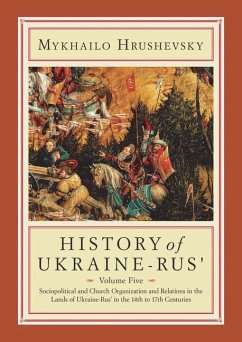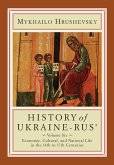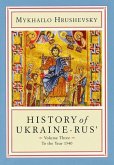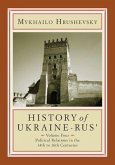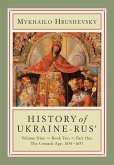In this fifth volume of Mykhailo Hrushevsky's History, the eminent historian focuses on the social, political, and ecclesiastical structures and relations of the Ukrainian lands during the fourteenth to seventeenth centuries. Here the main topics are the evolution of the social order, the functioning of civil administration, church organization, and the circumstances that led to a split in the Ruthenian-Ukrainian Church. Hrushevsky's narrative draws from an exhaustive examination of scholarly literature on the Grand Duchy of Lithuania and the Kingdom of Poland as it relates to the Ukrainian territories. His careful examination of sources, especially legal codes and taxation records (many of which had been published under his editorship), and discussion of historical terms explore the complex relations of diverse strata of the population. Although he focuses on the Ruthenian-Ukrainian population, he also deals with other ethnic groups (Poles, Jews, Armenians, and Lithuanians). In comparing developments in the Ukrainian lands under Lithuania with those under Poland, the historian highlights differences in governance and society, which remained even after the Union of Lublin (1569). He is especially critical of the consequences of adopting the model of Polish nobiliary society, including the subjugation of the peasantry and the decline of cities. After tracing the evolution of the structures of the Orthodox Church, he examines the genesis of the Uniate Church at the Union of Brest (1596), an event that shook the foundations of Ukrainian society. In sum this volume, together with volumes 4 and 6, gives the first complete academic examination of Ukraine between what Hrushevsky saw as the fall of princely Rus' and the rebirth of the Cossack age. Hrushevsky's dedication to the study of the popular masses allowed him to trace the continuities of Ukrainian history in a time of statelessness and the alienation of elites. The volume's introduction examines the historian's contribution to scholarship. An extensive glossary defines terms that figure prominently in the text. Each of Hrushevsky's eleven bibliographic Notes is followed by an editor's addition presenting information on subsequent research and publication. The comprehensive bibliography compiled for this English-language edition includes all sources and publications mentioned by Hrushevsky. Two maps, two appendices, and tables of rulers complete the volume.

